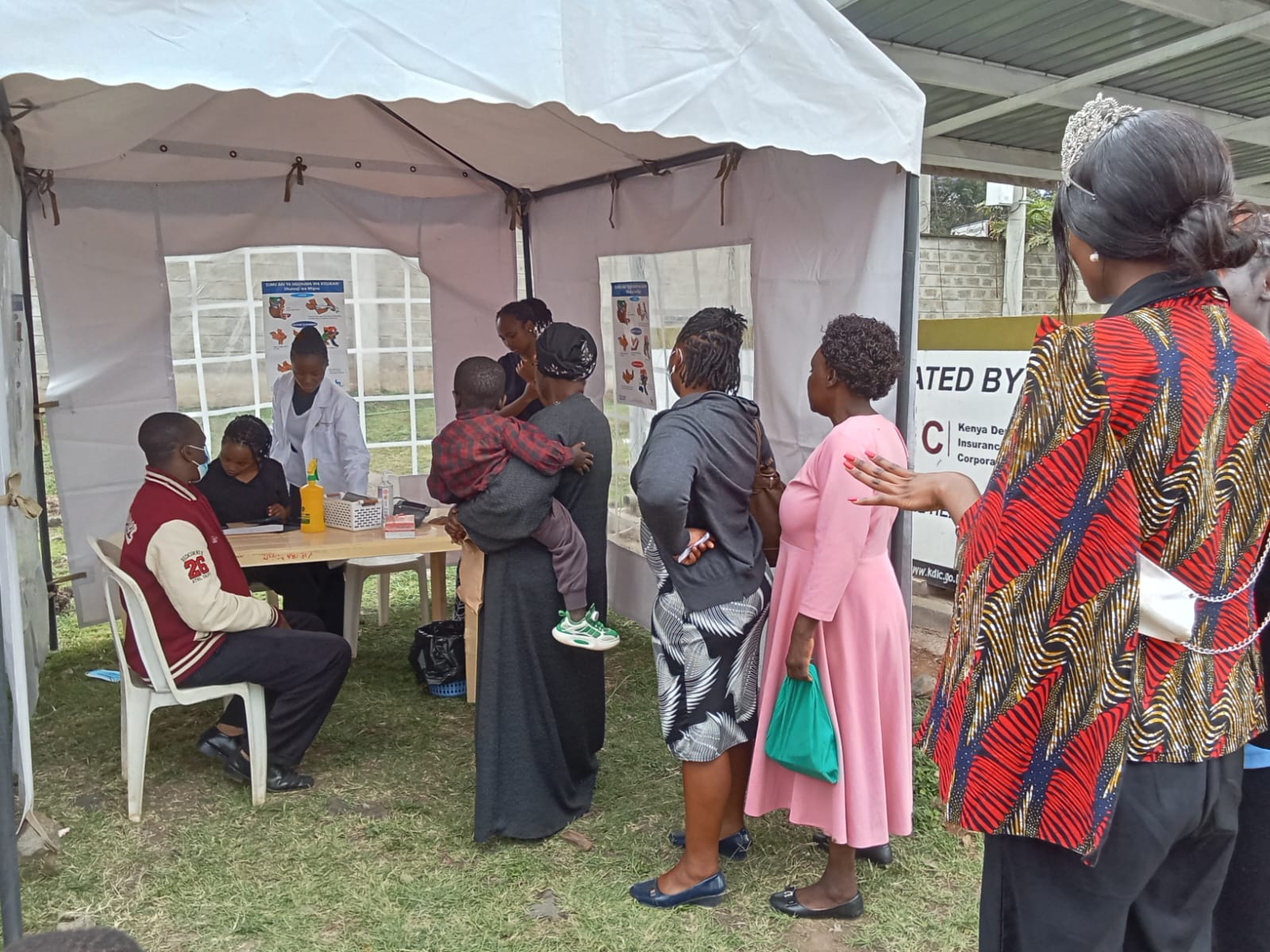Patients stranded as end of NHIF leaves many unprepared for SHIF rollout

KMPDU has reiterated that NHIF is far superior to SHIF, warning of potential fraud within the new payment system.
Alice Wanjiku, 49, sat in disbelief at Nairobi’s Mbagathi Hospital, struggling to comprehend that her NHIF (National Hospital Insurance Fund) card was no longer valid.
Having relied on NHIF for years to manage her chronic lung disease, persistent cough and health issues tied to her advancing age, she expected it to cover her costs as usual. But upon arrival, she learned that the card was not working, leaving her to pay out of pocket — something she hadn’t prepared for. Dizziness overwhelmed her as she struggled to make the payment.
More To Read
- MPs ditch SHA, the public health scheme they once praised, and opt for private cover
- Garissa County signs MoU with KMPDU to boost doctors’ careers and staffing
- MPs demand SHA clears Sh10 billion in pending NHIF bills within three months
- TSC confirms shift to SHA cover for teachers from December 1
- Court of Appeal postpones hearing on constitutionality of Health Acts
- Over 29,000 Kenyans die of cancer yearly as high costs force them to abandon treatment
Referred to Mbagathi from a rural hospital for further check-ups and diagnosis, Wanjiku found herself confused and frustrated.
"NHIF has served me well for years. With my constant cough and old age, it was something I could easily rely on," she lamented, her voice barely audible.
She attempted to pay for her hospital bill using her mobile phone but was stranded for hours as she struggled with her poor health.
Wanjiku's situation is not unique.
Across various hospitals in Nairobi, patients have been left in confusion and despair following the suspension of NHIF, which ceased operations on September 31. This suspension was triggered by the government's decision to implement the new Social Health Insurance Fund (SHIF) on October 1, leaving many unregistered and unaware of the changes.
A spot check by The Eastleigh Voice at Mbagathi Hospital revealed that most patients were paying out-of-pocket for health services, with consultation fees being directed to the hospital's pay bill account. NHIF cards, once the mainstay of outpatient services, are no longer accepted.
Naomi (not her real name), another patient, visited the Kenyatta National Hospital for a routine appointment following surgery, only to discover her NHIF card was also invalid. She expressed her frustration at the requirement to pay Sh1,100 upfront.
“I filled out a form, and they told me to pay the amount, so that’s what I did.”
Patients across various public hospitals reported being unprepared for the transition to SHIF, citing system breakdowns and a lack of information. Many still believed NHIF would remain operational, unaware that it had been replaced. This confusion has forced a majority of Kenyans to confront unexpected cash payments at a time when healthcare services are critical.
The rollout of SHIF, aimed at expanding healthcare coverage, has caught many by surprise, as there was inadequate communication and insufficient time to register. Vulnerable groups, including the elderly and those with chronic conditions, now face additional financial burdens at a time when they can least afford it.
With patients like Wanjiku and Naomi now forced to pay out of pocket, the urgent need for clarity and proper communication about SHIF registration has never been more apparent. Many hope the government will address these concerns and facilitate a smoother transition for millions of Kenyans who now find themselves without the safety net they once relied on.
Chronic illness patients, particularly those requiring cancer treatment, are also struggling due to the abrupt changes.
Kenyans have raised concerns about the SHIF rollout, especially regarding the unclear 2.75 per cent levy that the Health Cabinet Secretary Deborah Mlongo Barasa recently struggled to explain during a parliamentary session, yet Parliament approved the initiative.
The Kenya Medical Practitioners and Dentists Union (KMPDU) has reiterated that NHIF is far superior to SHIF, warning of potential fraud within the new payment system.
KMPDU Secretary-General Davji Atellah claimed the government's move aimed to benefit private insurers.
"SHIF is a capsizing ship! There is too much bilge water for it to sail. We have repudiated the Act from November 2023, with one message: 'It will deny Kenyans access to healthcare.' NHIF was superior to all other private-sector insurance plans, and the stoppage seems designed to benefit private insurance companies," he stated.
Some patients have registered for SHIF but are unsure where or how to make payments, or when they will access services under the new scheme.
A spot check across various hospitals revealed that many are hesitant to accept SHIF due to the previous failures and the significant NHIF debts that left the government owing large amounts of money to various health providers.
Top Stories Today












































